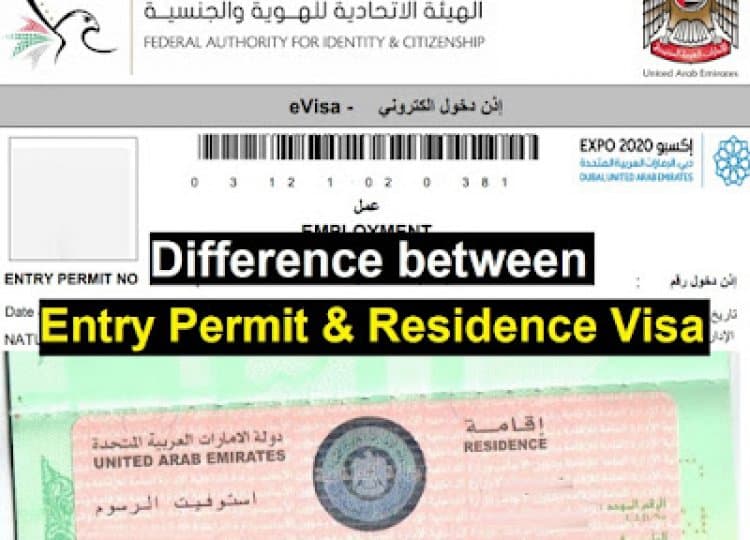
Difference between entry permit and Residence Visa
Entry permit, as the name suggests, provides entry to the UAE. It is a legal document issued by the Federal Authority for Identity, Citizenship, Customs & Ports Security. It allows foreigners to enter and stay in the UAE legally for a limited period. There has to be a sponsor who wants you to enter the country. This sponsor could be a company from the private sector, the public sector, a relative, a UAE-based airline, a hotel, etc.
There are different types of entry permits, based on their purpose, which include-
- entry permit - employment
- entry permit - family visit
- entry permit - tourism/transit
- entry permit - treatment
- entry permit - mission
- entry permit - attending conferences.
There is a time limit for the entry permit, which means that foreigners can enter and exit the country only during that time frame. For most of the permits, the period is two months. The validity of such permits cannot be extended. They expire automatically with time-lapse.
GCC Nationals do not require an entry permit. Their passport or visa would be sufficient. The period differs from person to person based on their country of origin. For example, the Chinese, Japanese, and American periods are only 30 days. In contrast, people from Iceland, Russian Federation, Brazil, and Italy are issued the permit for two months. The complete list of the countries is readily available on UAE's official website.
RESIDENCE VISA
The Residence Visa is granted for those foreigners who have already entered the country with an entry permit. The sponsors apply if they believe that it is necessary to extend the foreigner's stay in the UAE. It requires the person sponsored to undergo a medical test and prove that they are medically fit. He must pass a security check. Obtaining a Residence Visa is the natural next step after getting an Entry Permit.
The validity of a Resident Visa depends upon the requirements of the sponsor. It could be for a year, two years, or three years. Three years is the maximum for all classifications, with an expectation from Investment Visas or Retirement Visas, which can be issued for 5-10 years. Resident Visas are renewable.
The GDRFA will stamp a residence visa on his passport, allowing him to freely move in and out of the UAE for as long as the visa is valid. It is also as long as the trip is less than six months, or the residence visa will be automatically cancelled. As long as one's Residence Visa is valid, one can leave and return to the UAE. The document will be void if the travel period exceeds six months.
There are several different types of residency visas. Which include-
- Investment Visa
- Work Visa
- Student Visa
- Family Visa
- Retirement Visa
In conclusion, an Entry permit is issued for those foreigners who have the work of a less period. In contrast, a Residency visa is issued to those willing to work for a more extended period. The fee for application and procedure also differ.
By Elluri Srinitha Reddy
For any enquiries or information, contact info@thelawreporters.com